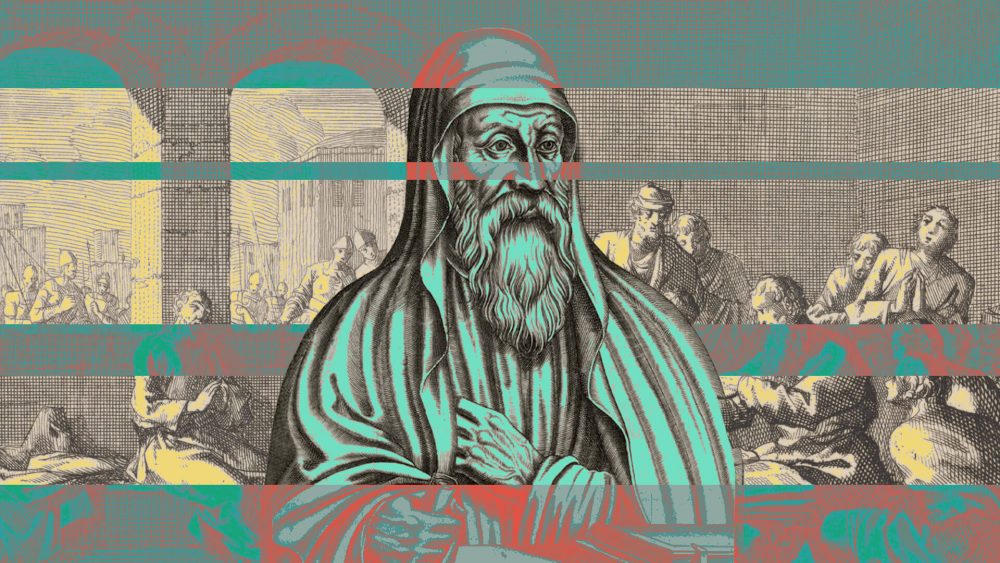Rev. José Mario O. Mandía
jmom.honlam.org
We have spoken about Clement who was the second person to head the School of Alexandria. The persecution unleashed by Septimius Severus drove him to Cappadocia. Clement fled with his pupil Alexander, who would later become bishop of Jerusalem. Clement was not able to return to Egypt again and died before 215 AD.
Demetrius, the bishop of Alexandria, appointed eighteen-year-old Origen to succeed Clement in the School of Alexandria. Origen was the oldest son in a large Christian family. He was probably born in Alexandria itself, around 185 AD. His father Leonidas, who had taught him Scripture and secular subjects, was martyred in 202 AD. Origen himself had a passionate longing for martyrdom. His literal understanding of Matthew 19:12 (“For there are eunuchs who have been so from birth, and there are eunuchs who have been made eunuchs by men, and there are eunuchs who have made themselves eunuchs for the sake of the kingdom of heaven. He who is able to receive this, let him receive it”) led him to emasculate himself. At the end of his life, his desire for martyrdom was in some way granted: during the persecution by Decius, Origen was arrested and tortured. This eventually led to his death in 253 AD.
Origen was an “outstanding teacher and scholar of the early Church, a man of spotless character, encyclopedic learning, and one of the most original thinkers the world has ever seen” (Quasten, II, p. 37). Pope Benedict XVI says that Origen “gathered up the legacy of Clement of Alexandria … and launched it for the future in a way so innovative that he impressed an irreversible turning point on the development of Christian thought” (General Audience, 25 April 2007).
Origen taught not only with his words but also with his deeds. Church historian Eusebius of Caesarea wrote of him: “his manner of life was as his doctrine, and his doctrine as his life. Therefore, by the divine power working with him he aroused a great many to his own zeal” (Church History, Book 6, Chapter 3, 7). He thus serves as a paragon for any teacher, especially one who imparts the sacred sciences. He followed the example of Jesus Himself, who endeavored “to do and teach” (Acts 1:1).
Benedict XVI adds that Origen is “the most prolific author of Christianity’s first three centuries. His field of interest extended from exegesis to dogma, to philosophy, apologetics, ascetical theology and mystical theology. It was a fundamental and global vision of Christian life” (General Audience, 25 April 2007).
In the preface to his book De principiis (‘On Principles’) Origen stated the criterion that he followed for teaching the Faith. In the Latin translation it reads: “Illa sola credenda est veritas quae in nullo ab ecclesiastica et apostolica discordat traditione” – “Only that which does not differ from ecclesiastic and apostolic tradition must be believed as truth.”
“The same norm is expressed almost in equivalent terms in many other passages, e.g., ‘non debemus credere nisi quemadmodum per successionem Ecclesiae Dei tradiderunt nobis’ [‘We should not believe anything except that which they have transmitted to us through the succession in the Church of God’] (In Matt., ser. 46, Migne, XIII, 1667). In accordance with those principles Origen constantly appeals to ecclesiastical preaching, ecclesiastical teaching, and the ecclesiastical rule of faith (kanon). He accepts only four Canonical Gospels because tradition does not receive more; he admits the necessity of baptism of infants because it is in accordance with the practice of the Church founded on Apostolic tradition; he warns the interpreter of the Holy Scripture, not to rely on his own judgment, but ‘on the rule of the Church instituted by Christ.’ For, he adds, we have only two lights to guide us here below, Christ and the Church; the Church reflects faithfully the light received from Christ, as the moon reflects the rays of the sun. The distinctive mark of the Catholic is to belong to the Church, to depend on the Church outside of which there is no salvation; on the contrary, he who leaves the Church walks in darkness, he is a heretic. It is through the principle of authority that Origen is wont to unmask and combat doctrinal errors. It is the principle of authority, too, that he invokes when he enumerates the dogmas of faith. A man animated with such sentiments may have made mistakes, because he is human, but his disposition of mind is essentially Catholic and he does not deserve to be ranked among the promoters of heresy” (“Origen and Origenism,” Catholic Encyclopedia, New Advent, https://www.newadvent.org/cathen/11306b.htm).


 Follow
Follow


